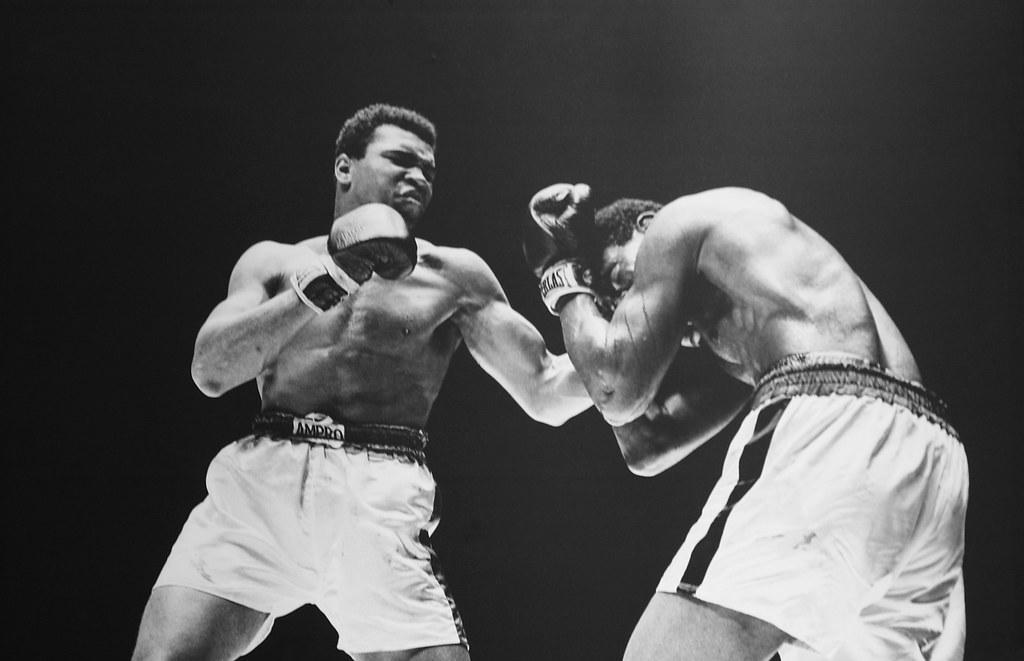Muhmmad Ali was the inspiration of a generation. Fighting within the ring and out, Ali inspired countless American youth with the will of his own tenacity and strength. Ali remains one of the most influential athletes of all time.
Through his entire career, Ali never failed to keep his moments lighthearted. A Triple threat, Ali had a gifted sense of humor. Before his fights, he would often put together rhymes and catchphrases, the most iconic of which is his “float like a butterfly, sting like a bee”. During his numerous press conferences, Ali would often invite the public to see him compose poetry, a scene often filled with laughter.
Ali’s rhymes were often directed at his opponents but still remained perhaps the most evolved, undoubtedly hilarious form of trash talk.
“Joe’s gonna come out smokin’, But I ain’t gonna be jokin’.
This might shock and amaze ya, But I’m going to destroy Joe Frazier.”
— Before losing to Joe Frazier in their first fight March 8, 1971.
“I got speed and endurance. You’d better increase your insurance.”
— To Larry Holmes before his one-sided loss in a bid to become a heavyweight champion for the fourth time Oct. 2, 1980.
https://www.youtube.com/watch?v=2m_t4pquUyk&feature=youtu.be
Ali on Religious Freedom
Muhammad Ali didn’t just fight on stage, he fought on a civic level as well.
In 1967, Ali was brought to court for evading the Vietnam war draft. Ali’s court case made him the most high profile draft evader in American history. Muhammad Ali based his case in part on his own religious freedom on his faith of Islam: “I’m not trying to dodge the draft. We are not supposed to take part in no wars unless declared by Allah or The Messenger. We don’t take part in Christian wars or wars of any unbelievers.”
When Ali was interviewed in court he responded by saying, “My conscience won’t let me go shoot my brother, or some darker people, or some poor hungry people in the mud for big powerful America. And shoot them for what,” he said. “But I have said it once and I will say it again. The real enemy of my people is here. I will not disgrace my religion, my people or myself by becoming a tool to enslave those who are fighting for their own justice, freedom and equality. If I thought the war was going to bring freedom and equality to 22 million of my people they wouldn’t have to draft me, I’d join tomorrow. I have nothing to lose by standing up for my beliefs.”
For the next three years, until his case was overturned, Ali was barred from boxing in the United States. Following a unanimous court decision in 1971, Ali was permitted to return to the ring.
As his career heightened, Ali never let go of his faith and humanity, championing for the release of detained journalist Jason Rezaian. Ali released a statement of support for Jason Rezaian, then jailed in an Iranian prison. Rezaian was released and spoke to the words of Ali, saying that “It was a turning point for [him]. The public acknowledgment by Muhammad Ali, one of the most unifying figures in the world… believed [he] was innocent of any wrongdoing meant everything to [him].”
In the years preceding his death, Muhammad Ali continued to fight for his faith, he received the medal of freedom, and raised awareness for the cause of his own internal struggle, Parkinson’s disease.
Muhammad Ali was rebel in all the rings, from the physical, the political, and the inspirational. Almost four years after his death, Ali’s legacy as a rebel continues to live on.
